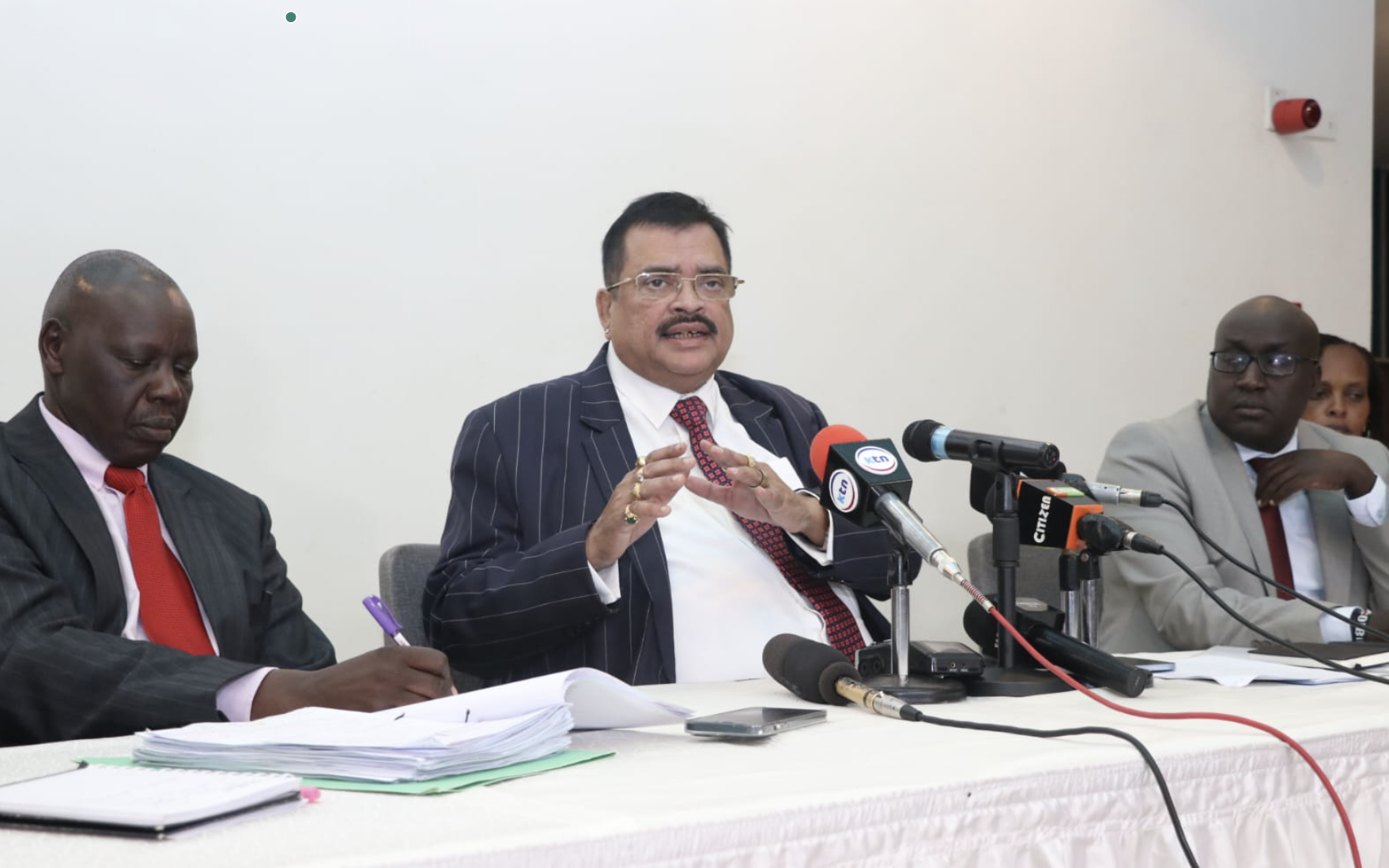 Lawyer Katwa Kigen, Mediheal group of hospitals founder and chairman Mishra Kiprop and lawyer Peter Oiboo during a briefing with the media at Boulevard hotel, Nairobi on July 29, 2025 /LEAH MUKANGAI
Lawyer Katwa Kigen, Mediheal group of hospitals founder and chairman Mishra Kiprop and lawyer Peter Oiboo during a briefing with the media at Boulevard hotel, Nairobi on July 29, 2025 /LEAH MUKANGAI
Mediheal founder Dr Swarrup Mishra says he is ready to carry the cross in the ongoing investigations into alleged unethical kidney transplants at his private hospital.
“If Mishra and Mediheal are really the culprits, we carry the cross,” he told journalists at a press conference in Nairobi on Tuesday.
The Ministry of Health committee on kidney transplants released a report earlier this month recommending the prosecution of Dr Mishra and three other senior doctors.
The key allegation, which the committee did not prove, was that poor Kenyans may have been paid to give kidneys to foreign patients, mainly from Germany and Israel.
The Health Act criminalises the sale of body organs or the facilitation of such a process.
Dr Mishra defended himself, saying all foreign patients who came for kidney transplants at Mediheal Hospital in Eldoret were accompanied by their foreign donors.
Dr Mishra and his lawyer, Katwa Kigen, dismissed the report, which they said they had not officially received but had been reading about in the media.
“If Mishra and Mediheal are really the culprits, we carry the cross. And if we are innocent, in the name of God, please give us justice, we will come back a thousand times better and deeper and stronger with passion. Mediheal doesn't belong to Mishra. It belongs to Africa and Africans. It will go all over Africa,” Mishra said.
He said Mediheal patients are responsible for bringing their donors and everyone signed an affidavit before an advocate indicating their relationship and confirming the donor was not paid.
"All foreign patients brought their own donors. Not a single Kenyan kidney has gone outside the country," he said.
He explained the hospital's role was purely medical, where, once a suitable donor is presented by the patient, both the donor and the recipient go through rigorous tests.
“We do cross-matching, HLA typing and gene mapping. This helps us reduce the risk of organ rejection after surgery,” he said.
Dr Mishra also presented figures to back Mediheal’s performance. Out of 476 kidney transplants performed at the hospital between 2018 and 2024, only 20 cases were rejected.
“Globally, the average rejection rate is 20 per cent. At Mediheal, it’s below five per cent,” he said. “Seven were acute, 13 were chronic. Out of those, eight were rescued successfully. So, only 12 were final rejections.”
He said all kidney donors are alive and healthy. The total number of patients who died within a month of transplant — considered transplant-related deaths — was eight. “Deaths after one month are considered natural and not related to the kidney procedure,” he said.
Mediheal lawyer Katwa Kigen said the hospital submitted complete documentation for 476 kidney transplants involving both Kenyan and foreign patients to the committee, which was chaired by Prof Elizabeth Bukusi.
“We supplied every single material that the ministry committee asked for. That includes the medical notes for all the patients, 476 of them. We also supplied 476 affidavits times two: one for each donor and one for each recipient.”
He added, “The deliveries of each of those documents were documented. We have return copies, and we dare the committee or anybody to say that any one of those patients’ data was not there.”
Kigen specifically addressed concerns raised about the authenticity of affidavits submitted by patients.
He said if the committee doubted the authenticity of the IDs or signatures on the affidavits, they had the contact details of all the patients, the doctors and even the advocates who commissioned the affidavits, but they never followed up.
He added, “We do not have the capacity to go and authenticate either their IDs or their passports. And so if the committee wants to say that indeed we did not go beyond the face of what we were told and the face of the documents we were given, we agree—that is true, because we do not have the capacity. We also don’t think that is what hospitals do. If the patients meet the medical criteria, even on the face of it they are believable, we do not have a reason to doubt them.”
Kigen dismissed claims that the hospital acted improperly by relying on those affidavits. “We satisfy the law. The Health Act only requires that we ensure the donor is acting out of free will, not for monetary gain or under coercion. That’s what we verify through those affidavits.”
One kidney specialist who saw the patients, Dr Srinivasa Murthy, also accompanied the two.
They defended the Sh2 million cost of transplant at Mediheal, saying it’s the cheapest among all private hospitals in Kenya.
They said that maybe that is what attracted many patients.











